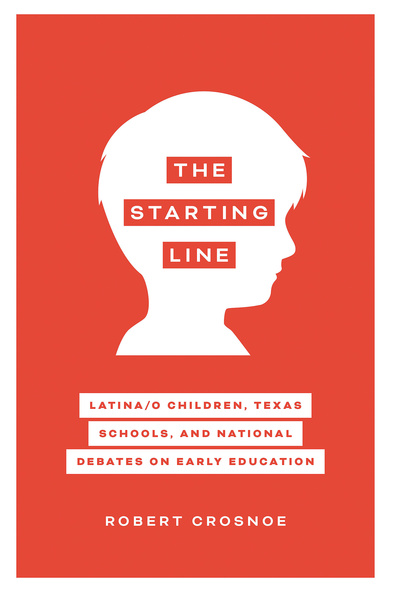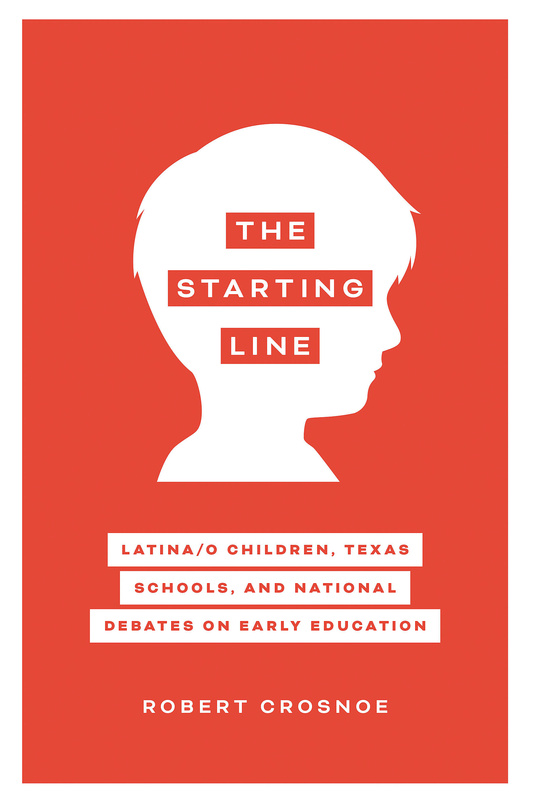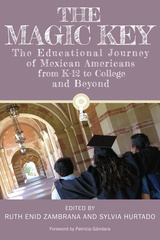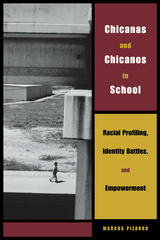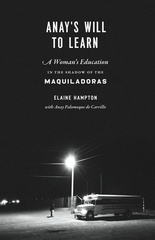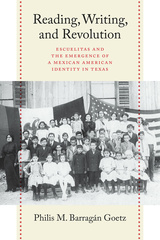The Starting Line
Latina/o Children, Texas Schools, and National Debates on Early Education
How can we create high-quality learning environments for children from socially, politically, and economically marginalized groups? How do early childhood programs help to overcome the challenges created by poverty? Seeking to answer these questions, The Starting Line delves into the ups and downs of early education programs serving Latinas/os in Texas, using the state as a window into broader debates about academic opportunity and the changing demographics of the United States.
Immersing readers in the day-to-day activities of Texas's early childhood education programs, Robert Crosnoe illuminates how significant obstacles can stymie the best intentions. Crosnoe pays particular attention to the complex connections among classrooms, schools, families, and communities, as well as the frequently unfolding interplay of educational philosophies. The result is a story highlighting the promises of early childhood education, the perils faced in attempting to fulfill them, and the degree to which Texas stands at the forefront of some larger movements and lags behind in others.
Giving voice to bilingual educators and low-income Latina/o families, this book is a timely exploration of the strengths and needs of what will soon be the largest share of the US child population.
[The Starting Line] offers bilingual educators and low-income Latina/o families a voice in the conversation regarding the educational needs of Latina/o children. Through the research presented here, practitioners, policymakers, researchers, and key community stakeholders may be able to identify specific levers for change to enhance family support and early childhood education programs for Latina/o children in Texas, as well as for the growing population of Latina/o children throughout the US. This reviewer highly recommends this book to a wide audience.
A vividly drawn bird’s-eye view of classroom life, The Starting Line shines a bright light into the hearts and minds of teachers. As the nation debates how to lift young children, this pioneering study reveals the complicated social organization of schools, especially the way teachers' bonds with one another yield more nurturing practices and stronger results for developing youngsters.
The Starting Line is incredibly enjoyable and informative for practitioners, policymakers, researchers, and the public. No other study so effectively synthesizes and incisively analyzes what could serve as possible levers for change in early childhood education and its service to young Latinx children in Texas.
Robert Crosnoe is an associate dean of liberal arts and the Rapoport Centennial Professor of Sociology at the University of Texas at Austin. He is the author of, most recently, author of Families Now: Diversity, Demography, and Development, coauthor of Debating Early Child Care: The Relationship between Developmental Science and the Media, among others.
- Preface
- Acknowledgments
- Introduction: National Issues through a Local Lens
- Chapter 1. The Importance of Connections in Early Childhood Education
- Chapter 2. Connecting Classrooms to Classrooms
- Chapter 3. Connecting Families, Schools, and Communities
- Chapter 4. Connecting Academic and Socioemotional Goals
- Chapter 5. Connecting Needs and Challenges
- Conclusion: The Big Picture
- Notes
- Works Cited
- Index

